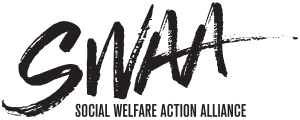This is where we “Spotlight” our members on a quarterly basis, as an opportunity for us to get to know “WHO” belongs to SWAA…
Sam Coleman took the time to talk about some of the most important aspects of why he joined SWAA, what he gets out of it, and some of the wonderful and intriguing aspects of his life. Click the link below and enjoy.
What is your name?
Sam Coleman, a.k.a Samuel Kataoka Coleman. –My wife and I exchanged middle names rather than do the hyphenated name option or arm wrestle over the same last name, so my middle name has been Kataoka for the last 30 years. (The Library of Congress hasn’t caught up yet, so my first book authorship is “Samuel Jerome Coleman.” )
In what city or town do you live?
I live in Orange County, California, not far from Huntington Beach (Surf City) and a 20-minute commute to California State University Long Beach, where my wife and I teach. Our favorite attraction is the area’s Asian food stores.
What is your association with the human services?
My PhD is in cultural anthropology, and my research and teaching have always taken up problems in human well-being. (I conducted my dissertation research in Japan on the causes of that country’s high induced abortion rate.) I went into social work about twelve years ago by earning an MSW from CSULB. I originally intended to become a private practice therapist! How many of us got started that way, I wonder… After I graduated I worked for four years-plus in direct practice for the Orange Caregiver Resource Center as a family consultant. I then taught for one year in the CSULB School of Social Work as a field seminar instructor, but lost that job when our university took its first of a series of nasty budget hits–which, by the way, we’re still experiencing. I still hover around that School–the Director, Christian Molidor, is a superb individual–and I teach part-time in the Department of Asian & Asian-American Studies at CSULB as a Lecturer. Progressive social work sensibility informs all my roles: teacher / researcher, secretary for the Orange County chapter of Veterans for Peace, and volunteer for our CSU union, the California Faculty Association.
How long have you been a member of SWAA, and how did you first learn about us?
I’ve been a member of SWAA since 2003. Moya Atkinson, a devoted activist for peace and social justice, encouraged me to join. I soon learned more via Joan Dworkin, academic colleague and longtime advocate for human rights in community organization. I’m so proud to claim both of them as friends and colleagues.
How do you define progressive or radical practice?
That’s a tough one to answer, because social work presents so many opportunities for effort, and rarely in our profession’s history have the difficulties been so multi-faceted and the stakes so high. I hope I don’t sound trite when I answer thus: “Progressive/radical practice applies our unique set of experiences and perspectives to comfort the afflicted and afflict the comfortable.” (I know, I stole some of the phrasing from a newspaper editorialist.) By the way, I’m so glad that SWAA comprehends both “progressive” and “radical” practice. I wrote about the pluses and minuses surrounding both of those terms in a JPHS editorial piece, “The Radical Burden” (2011).
Can you give us an example of a radical activity that you have developed or have been a part of that you feel has been successful?
I wish I could point to a confirmed case of successful effort. What I can do is describe projects in which I’ve been participating that have introduced me to some special people. Two years ago, with funding from the CFA and–of all places–the CSULB College of Business Administration, I organized campus-wide multiple screenings of Inside Job, the Oscar-winning documentary that exposes the filth and corruption behind the economic crash of 2008. It helped inspire a movement that we in the NASW-CA Social Action Social Justice Council have undertaken to get the California chapter of NASW divest from Wells Fargo. Please stay tuned for news of progress! On the peace front, every month our Orange County chapter of Veterans for Peace sets up Arlington West, a memorial with rows of grave markers in the sands of Huntington Beach, to remind passers-by of the needless deaths and sorrow that our country’s wars of choice have wrought.
Perhaps there are no solid “metrics” for success yet in any of these efforts, but I take inspiration from these words from Chris Hedges: “I don’t fight fascists because I think I can win. I fight them because they’re fascists.”
What action or strategy do you think holds the most likelihood for meeting people’s human rights?
I believe that revitalizing American labor through a militant union movement and workplace democracy holds the ultimate key to human rights and social justice.
Where do you think SWAA should go, be or do next?
Despite the obstacles, I think there’s genuine promise in pursuing working class – middle class alliances via the workplace or community associations, focusing on such issues as better working conditions and schools, respectively. Academia is one important arena–Ayn Rand knew that! Overcoming this country’s rancid ambient right-wing ideology should be our first order of intellectual business, and this web site offers such an exciting tool for collaborating to that end.
What is your favorite reading on radical social work?
I recommend anything written by David Wagner (University of Southern Maine). For international aid work, my favorite is Mountains Beyond Mountains, by Tracy Kidder.


